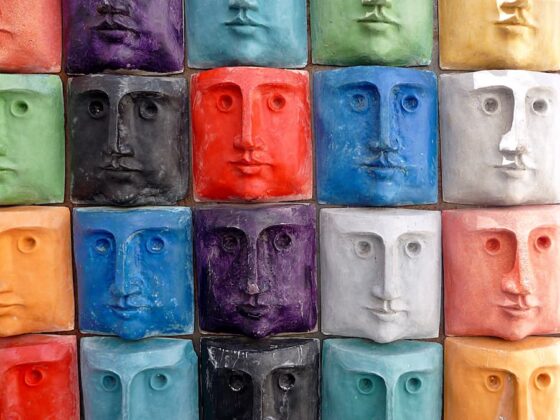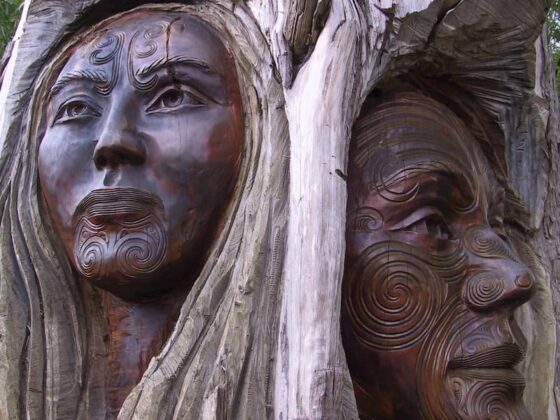This June we launch the HIP pride delving into the significance of LGBTQ role models in the workplace and the immense benefits they bring.
Having LGBTQ role models not only fosters a sense of belonging for LGBTQ employees but also creates a more diverse and dynamic workforce. These role models serve as beacons of inspiration and empowerment, demonstrating that success knows no boundaries – regardless of sexual orientation or gender identity. Their presence helps break down stereotypes, challenge prejudice, and promote understanding among colleagues. LGBTQ role models can provide guidance, mentorship, and support, paving the way for future generations.
By embracing diverse role models, we enhance our ability to attract and retain top talent from all walks of life. LGBTQ individuals bring unique perspectives, experiences, and skills that enrich our teams, drive innovation, and ultimately lead to better business outcomes.
Let’s continue to champion diversity, equality, and inclusion in the workplace. Together, we can create an environment where everyone feels valued, respected, and empowered to be their authentic selves.
SHOW NOTES:
00:09 Acceptance and equality
00:56 Promoting inclusivity and diversity
01:35 Breaking down stereotypes and biases
02:29 Inspiring and supporting others
03:19 Enhancing organizational reputation
04:03 The power of transformation
04:54 The essential role of LGBTQ allies
TRANSCRIPT
The Importance of Having LGBTQ Role Models in the Workplace
In recent years, the global landscape has seen significant progress in the acceptance and recognition of diverse sexual orientations and gender identities. As society continues to evolve, it is essential to foster inclusivity in all aspects of life, including the workplace, however large or small an organisation might be.
Having LGBTQ role models in professional settings serves as a powerful catalyst for positive change, promoting diversity, acceptance, and equality. Today we delve into the significance of LGBTQ role models in the workplace and the immense benefits they bring.
Adam Hugill – Promoting inclusivity and diversity
LGBTQ role models in the workplace play a pivotal role in fostering inclusivity and diversity. By openly embracing their authentic selves, they challenge traditional norms and stereotypes, creating an environment where individuals feel safe to disclose their own sexual orientations and gender identities. Such an inclusive workplace empowers employees to bring their whole selves to work, fostering a sense of belonging and psychological safety. It encourages individuals to share their unique perspectives, skills, and experiences, ultimately leading to enhanced creativity, innovation, and productivity within the organization.
Marco Raccuia – Breaking down stereotypes and biases
LGBTQ role models act as powerful agents of change by breaking down stereotypes and biases. Their presence challenges preconceived notions about sexual orientation and gender identity, debunking myths and misconceptions. By embodying professionalism, competence, and success, they prove that one’s sexual orientation or gender identity does not hinder their ability to excel in their chosen fields. This exposure to diverse role models helps combat discrimination, prejudice, and unconscious bias, fostering an environment of equality and fairness.
Kajal Aswani – Inspiring and supporting others
LGBTQ role models serve as beacons of hope, inspiration, and support for individuals navigating their own journeys of self-discovery and acceptance. Their visibility provides comfort and reassurance to LGBTQ individuals who may feel isolated or afraid to express their identities. By sharing their personal experiences, challenges, and triumphs, they offer guidance, mentorship, and a sense of community. This support network is crucial for LGBTQ employees, as it boosts self-confidence, resilience, and professional growth, ultimately leading to higher job satisfaction and retention rates.
Kelly Merris – Enhancing organizational reputation
Organizations that prioritize diversity and inclusivity by embracing LGBTQ role models gain a competitive edge. By creating a workplace that celebrates diversity, they attract top talent from a wide range of backgrounds and experiences. Prospective employees, particularly those from the LGBTQ community, are more likely to choose organizations that demonstrate a commitment to inclusivity. As a result, embracing LGBTQ role models helps enhance an organization’s reputation, both internally and externally, as a progressive, forward-thinking, and socially responsible entity.
Kim Macnamara – The power of transformation
The presence of LGBTQ role models in the workplace is not only vital but also transformative. By promoting inclusivity, breaking down stereotypes, inspiring others, and enhancing organizational reputation, these role models contribute to a more accepting and equitable work environment. It is imperative for organizations to actively seek and support LGBTQ role models, providing them with platforms to share their stories, experiences, and expertise. Only by fostering such an environment can we truly harness the potential of a diverse workforce and create workplaces where everyone can thrive, regardless of their sexual orientation or gender identity.
Caroline McNally – The essential role of LGBTQ allies
Allies are individuals who are not part of the LGBTQ community but who actively support and advocate for their rights. These individuals play a crucial role in creating a safe and inclusive environment as they promote diversity, understanding, and acceptance. The presence of LGBTQ allies within the workplace is crucial for creating an inclusive and supportive environment.
By fostering inclusivity, promoting education and awareness, creating a support network, and enhancing organizational culture, allies contribute to the overall well-being and success of the workforce. It is essential for organizations to actively encourage and support allies, providing them with resources, training, and opportunities to make a difference.
Together, LGBTQ individuals and allies can create workplaces that celebrate diversity, equality, and respect for all.
This video is for informational purposes only. Its contents do not constitute legal or professional advice.




